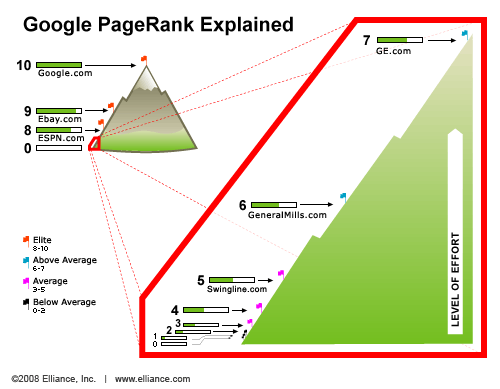| Apr 30, 2010
Online, are you a mouse or an elephant?
Not long ago, we were doing a search engine marketing project for Walmart. They were wondering why Amazon shows up above them in almost all the product categories, even though they are bigger than Amazon. I explained how the rules of physical world don’t apply online. In the physical world, Walmart is an elephant and Amazon is a tiny mouse. Online, the situation is reverse: Amazon is the real elephant, and Walmart is just a mouse. Let me explain.
Online, search engines like Google, will rank your website higher if it has a larger number of other websites linking to it. Search engines simply don’t care how big your corporation is.
Amazon, right after it was formed, created its brilliant Affiliate program, which works by a simple rule: you put a “Buy From Amazon” link on your website, register yourself with Amazon, and Amazon will send you a small check if someone follows the link from your website and buys a book. Guess what? In a very short time, millions of authors put links from their personal websites to Amazon to increase the sales of their books, collecting a few extra bucks on the way. When I checked this evening, Amazon has 222 million inbound links to its website, as compared with 2 million for Walmart.
A consequence of this genius strategy is that Amazon’s Google PageRank is 9 as compared to 7 for Walmart. PageRank is Google’s measure of importance of a website; it is a logarithmic scale with 0 being the least important and 10 being the most important. (See the explanation of PageRank in the diagram below)
Because Amazon has more inbound links, and consequently a higher PageRank, when Google serves up results for a product that is available at both Amazon and Walmart, it almost always serves up Amazon listings higher than Walmart’s.
So the question you should be asking is: irrespective of your physical might, are you a mouse or an elephant or the web? And what genius strategy are you dreaming up to become an online giant?

